Written by JT Townsend
When their firstborn child was kidnapped from their home on March 1st, 1932 and found murdered in the woods two months later, Charles and Anne Morrow Lindbergh were the most famous couple in America, and the case would become the most publicized crime of the 20th century.
Eventually, suspect Bruno Richard Hauptmann was convicted and executed for killing “Baby Charlie”. But this delayed justice did nothing to answer the questions that still surround the death of Lindbergh’s child and confound crime writers and armchair detectives 85 years later.
As one of the only writers to tour the Lindbergh house near Hopewell, New Jersey AND photograph this infamous crime scene, my perspective is different from others who have delved into “The Crime of the Century”. In my mind, today the murder of Charles Lindbergh Jr. is perhaps the greatest mystery in American true crime annals.

Beginning before his execution and still lingering today, relentless theories suggesting Hauptmann’s innocence continue to surface. Because up until his capture almost three years after the crime, none of the investigators believed that ONE man could have carried out this audacious crime alone. And even though Hauptmann was convicted, there was never any credible evidence placing him near the Lindbergh property the night the baby was taken.
But until recently, no one ever took a serious look at those who should be the prime suspect when a child is killed…the parents. Given Charles Lindbergh’s stature as an international hero, investigators in 1932 never even considered the unthinkable… that Lindbergh was a suspect in the death of his son.
They were all looking the wrong way. For over eight decades now, everyone examining this crime considered it a “kidnapping“… when they should have been looking for a BABY KILLER! The kind of criminal who would murder a sleeping child in his crib, or kill him soon after the abduction to keep him quiet. A human monster who could smash a 21-month-old child’s skull.
What if there never was a kidnapper? What if this loftiest of high profile crimes was merely just another missing child murdered by his parents? Or in this case, his father.
An American Hero?
The circumstantial evidence against Lindbergh in the death of his son is compelling, intricate, frustrating, persistent and mysterious. Just like the man himself. Every biography of Lindbergh treats him like a god, and today he is still revered as a great American hero. But what did he really do to deserve it?
In May 1927, 25-year-old Charles Lindbergh flew solo across the Atlantic in 33-1/2 hours, becoming the first pilot to accomplish this feat. And with this triumph, he emerged from virtual obscurity to instantaneous world fame, transforming an oddball loner into a beloved public figure.
But did this sudden adulation go to his head? A Lindbergh quote after his historic flight provides some unsettling insight: “There were times in an airplane when it seemed I had escaped mortality to look down on earth like a God.”
It didn’t seem to matter that if he had failed, other pilots would have made the crossing within days. He was just an average bush pilot who beat the competition across the Atlantic for the $25,000 prize. Years later, a friend of his wife was quoted as saying “If he hadn’t made that flight, he’d be running a gas station in Minnesota.”
Lindbergh was now the nation’s most eligible bachelor. Before marrying the middle daughter of Ambassador Dwight Morrow in 1929, he first courted Anne’s older sister Elizabeth, but dumped her for Anne within several months. Also during this time, youngest Morrow sister Constance received a letter threatening to abduct and kill her unless $50,000 was paid and placed in a specially made box in a cemetery….an eerie harbinger of the kidnapper’s ransom demand in 1932. The perpetrator of this earlier threat was never identified.
While seven months pregnant in 1930, Anne flew with Charles for two weeks in an open cockpit at high altitude. Upon returning she was hospitalized for four days, yet when questioned Lindbergh lied about this to the press. After he was born, baby Charlie was immediately put on a special diet. The child had a larger head than normal, and he showed other symptoms indicative of rickets. Rumors that something was seriously wrong with the world’s most famous baby would never subside.
As time ripened his legendary status, Lindbergh’s character flaws were twisted into admirable traits by those who knew him or wrote about him. The cruel behavior he directed at those he disliked or dominated was excused as mere “practical jokes”.
In truth, Charles Lindbergh was a racist, misogynistic man of the times who never took advice from anyone but himself. Eventually, his well-known obsession with order, routine, and privacy would consume his daily life. But where did he draw the line between privacy and secrecy? Because within the last several years, DNA evidence has proven that Lindbergh fathered five out-of-wedlock children born by three different mothers in Germany in the 1950’s.
The Crime Of The Century
When looking at the Lindbergh baby murder, it all starts with the prime constraint theory… a circumstance or condition which all facts of the case must be filtered through and clarified by. With Lindbergh, there is ONE fact that EVERY shred of evidence must answer to.
Only Charles, Anne, their three servants, and some servants at the Morrow mansion in Englewood NJ knew that the family would be staying at the Hopewell house on a Tuesday night…and only after Lindbergh decided they would remain there past Sunday for the FIRST time ever.
Lindbergh’s new home, named Highfields, was in an isolated area of the Sourland Mountains near Hopewell NJ. Charles had rented a farmhouse about four miles away from the construction site to oversee the initial phase. In the winter of 1932, the house construction was almost finished, but the grounds were a muddy mess.

The family’s habit was to stay there on the weekend but return to the Morrow mansion on Monday. The last minute decision to stay over at Highfields because of baby Charlie’s cold was unprecedented…a complete break from Lindbergh’s established pattern.
Described by writers as “spacious” and “rambling”, the house is anything but. On my recent tour I was astounded by the narrow hallways, constant closets, and cramped rooms…everything seemed built on a small scale. I can attest that sound travels well through this 14 room/5 bathroom country house. Also, the location was extremely isolated in 1932 and still is today.
Visiting these gaunt rooms and walking the lonely grounds where this primal, ageless mystery was spawned, today any cold case detective would be indelibly struck by a single jarring thought…that THIS crime was an inside job.
Let’s look at the undisputed facts of the case, and see where they lead…
On the night of his son’s abduction, Charles Lindbergh did something completely out of character. I am always suspicious when a suspect takes an action the day of a crime that seems unrelated yet was something they had NEVER done before.
He was a scheduled speaker at the New York University alumni dinner, and Lindbergh never missed an opportunity to be adored and applauded. Yet on this night in question, he blew off this social function without even notifying them. Instead, he drove the two hours back to Highfields, where he arrived around 8:25 PM.
Lindbergh had phoned ahead with strict instructions that no one was to enter the nursery between 8-10PM that night…he didn’t want the child “coddled”. Both Anne and nursemaid Betty Gow were in and out of their respective bathrooms (next to the nursery) during that period, but neither woman heard anything.
Baby Charlie was missing from his crib when Betty checked him at 10 PM. She and Anne both assumed that Lindbergh had removed the child as a practical joke. Yet when confronted with the empty crib, Lindbergh exclaimed, “THEY have stolen our baby!” With his unfounded pronouncement, from that moment on this crime was considered a kidnapping.
A ransom note was eventually found on a nursery windowsill… the kidnapper apparently entered through this window on a broken ladder found nearby. But how could he have backed out onto this rickety ladder through the window while carrying a 35lb child on a windy, rainy night without disturbing anything by the window? And also leaving no muddy footprints on the nursery floor?
Other things didn’t add up. Why did “THEY” enter the house when all five adult residents were awake and moving about, instead of waiting until after midnight?
How did “THEY” know which room was the baby’s nursery, and how did they know which nursery window had the broken shutter lock?
The “Lindbergh Baby Kidnapping” became an instant media sensation. Journalist H.L. Mencken set the bar for hyperbole by calling it “the biggest story since the Resurrection”. Indeed, the mysterious abduction of the premiere American power couple’s first born child would become an international obsession.
With the eyes of the world upon him, Charles Lindbergh immediately took control of the investigation and directed it away from Highfields. He erroneously assumed the New York mafia had stolen his son, and foolishly gave gangster Mickey Rossner a copy of the ransom note to circulate among the underworld, which led to 13 other ransom notes being delivered by mail to Lindbergh.
When J. Edgar Hoover sent two FBI agents to consult on the investigation, Lindbergh angrily sent them away. He had the New Jersey State Police already reporting to him, and he threatened to shoot any officer who didn’t follow his protocol.
In April, Lindbergh and his “liaison,” John Condon delivered $50,000 in gold certificates to an unknown man in a Bronx NY cemetery claiming to represent the kidnap gang.
Despite the pleas of New Jersey and New York investigators, Lindbergh forbade any policemen to stake out the cemetery and follow the suspect, whose directions on where to find the child turned out to be bogus.
Other extortion demands would follow, but on May 12th the body of Charles Lindbergh Jr. was discovered 2.5 miles south of the Lindbergh house and about halfway between Highfields and the farmhouse Lindbergh had rented in Mount Rose. It was clear the baby had been murdered by a blow to the head the night he was taken. The killer showed familiarity with the area, placing the dead child in a shallow grave about 50 feet from the road in a dense woods while in total darkness.
Even though the coroner said he could not identify the mummified remains, Lindbergh said, “I am perfectly satisfied that is my child.” Then he ordered it cremated… an absolutely astounding decision that not only denied his wife the right to bury her child, but also destroyed the most valuable piece of evidence.
On May 23rd, Morrow family maid Violet Sharpe committed suicide rather than face more questioning about possible involvement in the baby’s death. And she WAS one of the handful of people who knew the Lindbergh’s would be staying at the house in Hopewell the night of March 1st.
The Perfect Scapegoat
The case lay dormant for more than two years, even though the investigation was ongoing. They were following the money, as the gold certificates were showing up all along the eastern seaboard. Despite Lindbergh’s objection, the police had allowed bank officials to record the serial numbers from the bills.
On September 17th, 1934, a Lindbergh ransom bill was passed at a gas station in the Bronx. Since it was a gold certificate, which were being recalled by the government, the attendant wrote down the license number on the bill so he wouldn’t get stuck for the $10. It confirmed by the bank’s list and traced back to one Bruno Richard Hauptmann, who was arrested the next day.
New York police would find almost $15,000 of the ransom money in Hauptmann’s garage. He claimed to be holding it for his business partner Isador Fisch, who had left for Germany, paid for his ticket with Lindbergh ransom money, and died there in 1933. It was a “fishy” story to be sure, and newspapers judged Hauptmann guilty with blaring headlines celebrating the capture of the “Lindbergh Kidnapper”.
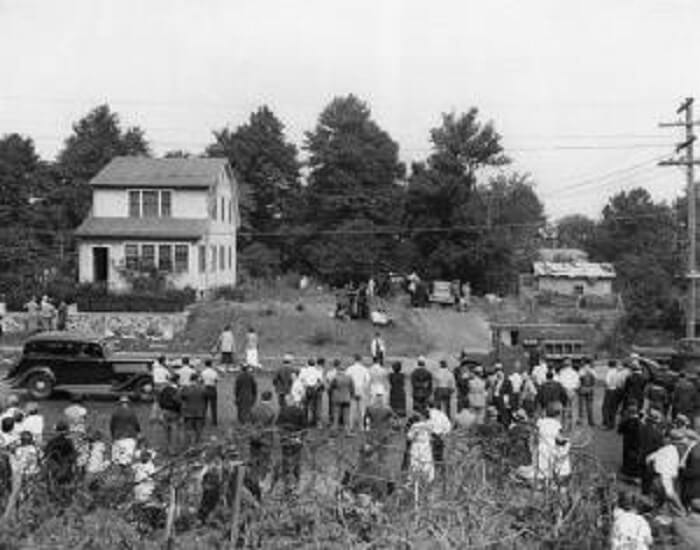
Yet the money was found wrapped in newspapers from September 1934 and not from April 1932 when the ransom drop went down. This supported Hauptmann’s story that he had recently rediscovered the package the now deceased Fisch had left in his care before sailing for Germany. He was astounded to find it contained the money, and since Fisch had owed him $7000 but was beyond repaying it, Hauptmann hid it in the garage and didn’t tell his wife about it.
But his wife did alibi him for the murder. Several witnesses could place Hauptmann two hours away from Hopewell on the night in question, picking her up at the Bronx bakery where she worked. Anna Hauptmann insisted that her husband picked her up every Tuesday night, including March 1st, 1932. And Hauptmann’s work records showed him doing carpentry work in New York City during that day.
Beyond the ransom money, the case against Hauptmann was thin. Unlike the 1932 Schoenfeld profile of the kidnapper as an anti-social loner dissatisfied with his station in life, Hauptmann was happily married with a young son and had many friends among the Bronx German community, including Isador Fisch. But he was a secretive man…an illegal immigrant whose wife didn’t know his first name was Bruno until he was arrested.
At trial, the New Jersey prosecutor pulled out all the stops. Someone had to pay for killing the Lindbergh baby. Handwriting experts claimed Hauptmann wrote the 14 ransom notes while agreeing the one in the nursery was different from the others. Two unsavory and unreliable witnesses placed him near Highfields the day of the crime.
Convoluted “wood evidence” supposedly proved that master carpenter Hauptmann had pulled a single board out of his landlord’s attic to finish the kidnap ladder, rather than just use the wood stored in his garage. And of course, there was the matter of that ransom money…even though the majority of it was still unaccounted for.
Spurious identifications by Condon and Lindbergh won the case, though neither man had identified him before the trial as “Cemetery John.”
Lindbergh’s testimony was highly improbable… he identified a voice he heard calling to Condon from over 70 yards away and three years earlier as that of Bruno Richard Hauptmann.
That turned out to be all the jury needed to convict the German carpenter. Even with the conviction, the logistics of the crime were a mystery. How could Hauptmann have accomplished this incredible scheme alone? Indeed, all communication after the kidnapping stressed that the “gang” was well organized and had been planning the abduction for some time.
After the death sentence was handed down, the Boston Herald pulled no punches. “Hauptmann’s trial was a raucous tragedy… with few exceptions prosecution witnesses either distorted the truth or committed flat-out perjury… the state police had tampered with physical evidence, and in many cases suppressed vital information.”
Most amazingly, Lindbergh had been allowed to sit at the prosecutor’s table for the whole trial, wearing a shoulder holster under his suit coat. From a legal perspective, having the victim’s father in the courtroom for any reason other than his own testimony is strictly forbidden and grounds for appeal.
Not satisfied that justice had been served, New Jersey Governor Harold Hoffman launched his own investigation and focused on one aspect of the crime…the complicity of others. “I do not believe this crime was committed by any one man, and there is ample evidence that the chief witnesses and the prosecution share my belief.” Shortly after Hoffman made this statement, Charles Lindbergh secreted his wife and new son on a freighter to England in the dead of night. Our American hero had left the country.
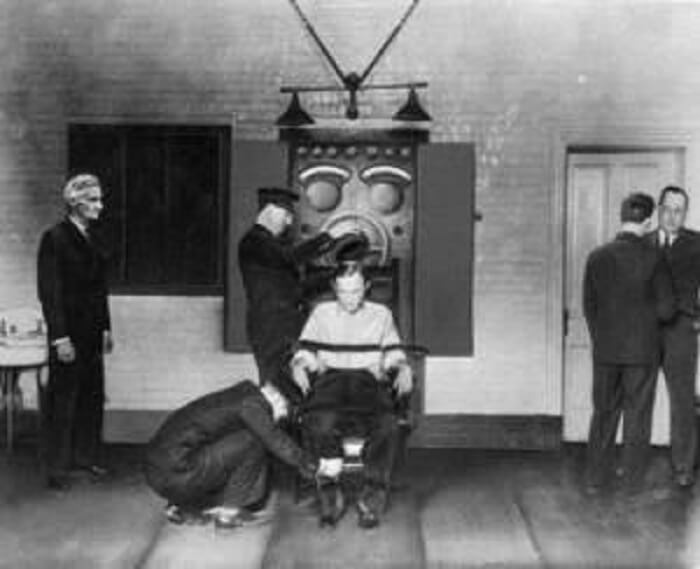
Hauptmann continued to insist he was innocent. He declined a newspaper offer of $100,000 for his wife if he confessed. And when the Governor offered to commute his death sentence for the same confession, he tearfully told Hoffman he had “nothing to confess”. Some investigators believed he would spill his guts when he was strapped in the electric chair, but Hauptmann remained silent when asked if he had any final words.
The Circumstantial Case Against Charles Lindbergh
The fascination with this crime endures eight decades later. Even though a man was convicted and executed, the police, prosecution, and press were never able to reveal precisely who the kidnapper was and what preparations and methods he, or they, employed.
All the evidence BEFORE Hauptmann’s capture indicated a well-prepared gang was involved…at least in the NY extortion case. Yet all the evidence at the crime scene in Hopewell suggested that the removal of the child could have been an inside job.
People can lie… but behavior never lies. And if demeanor is everything, why would America’s hero act this way after his son went missing?
Lindbergh left instructions that his son was to be put to bed at 8 PM, and that no one should disturb him or enter the nursery until 10 PM. And baby Charlie was kidnapped during that time frame.
- Lindbergh was scheduled to attend the NYU alumni dinner, yet he didn’t show or call to cancel. Despite his renowned reliability, he blew off a commitment on the night his son was taken.
- He told Anne he heard the sound of wood snapping from outside, yet Anne and the three servants said later they heard nothing that night, and the normally alert family watchdog Wagoosh did not bark.
- When Betty Gow found the empty crib at 10 PM, both she and Anne assumed Lindbergh had taken the child as a practical joke, as he had done several weeks before by hiding him in a closet.
- When Lindbergh saw the empty crib he announced. “Anne, they have stolen our baby!” Even before searching the house for the toddler, Lindbergh planted the seed that his son had been kidnapped.
- Anne and the servants searched the house, starting in the nursery, and none of them saw the ransom note on the window sill. Yet Lindbergh discovered it after returning to the nursery alone.
- Handwriting experts would later agree that THIS FIRST note was different from the other 13 ransom notes, suggesting it was written under duress and an attempt was made to disguise the writing.
- Lindbergh put himself in charge of the investigation, insisting that the NJ State Police turn over all their information to him. At one point he threatened to shoot any officer who violated this order.
- When Hoover sent two FBI agents to assist with the investigation, Lindbergh turned them away, refusing help from the one agency whose experience and training gave them the best chance of returning his son.
- Lindbergh shunned the FBI yet invited numerous cranks, tipsters, mediums, and gangsters to help while blocking every logical police procedure which might have yielded useful information.
- Lindbergh replaced solid investigative procedure with his amateur methods, obscuring the trail, creating false leads away from Hopewell, and taking actions designed to create deceptive clues.
- Lindbergh rejected an NYPD plan to stake out the ransom drop at the cemetery.
Lindbergh tried to explain this behavior away by saying he did not want to jeopardize the safe return of his son. Yet the child was never threatened in any of the ransom notes…most likely because the extortionists never possessed the child to begin with.
Many smaller strands are also suspicious. Why did Lindbergh call to say he would be “late”, and then strangely honk his horn when he arrived home at 8:25 PM? Why did he forget to bring Charlie’s other dog that always slept under the crib? Why did he call Betty Gow to the nursery to see the note, send her downstairs for a knife, and then refuse to open the note until the State Police arrived? Wouldn’t an anxious father rip the note open? Why did he suddenly take his family to live in Europe “for their safety” right when Governor Hoffman re-opened the investigation? Why not just take them right after the kidnapping?
And WHY on earth did Lindbergh order his son to be cremated immediately after HE made the identification? Not only was the child’s body important evidence, but Lindbergh never stopped to consider if Anne might like a Christian burial for her son.
So Who Killed The Lindbergh Baby?
Bruno Hauptmann may have been “Cemetery John”, but more likely got the second hand “hot money” from Isador Fisch, who was known to traffic in illegal currency. And in 1933 gold certificates could be bought for 25 cents on the dollar, an excellent margin for a sleazy speculator like Fisch.
But there is no CREDIBLE evidence to place Hauptmann at the Lindbergh estate that night, and his work records and wife’s testimony place him in the Bronx all that day. There is nothing to suggest that HE could kill a baby.
The truth of this seminal crime resides with the handful of people who knew the Lindbergh family would be staying at Highfields on a Tuesday night…for the first time EVER.
Morrow servant Violet Sharpe killed herself rather than face more questioning…did she tell the wrong person about the family’s last minute change of plans?
Nursemaid Betty Gow, one of five people at the crime scene, had a shifty boyfriend who was aware of the baby’s location that night. And Anne Morrow Lindbergh’s older sister Elizabeth was at the Hopewell house over the weekend…did she kill the child in a delayed fit of jealousy over Lindbergh jilting her for the younger sister?
Charles Lindbergh, deathly afraid of scandal, would have covered up any of these scenarios with a fake kidnapping.
Or was baby Charlie murdered for a more sinister reason? Rumors about the mental and physical health of the child flourished even before the “kidnapping”, and it’s interesting to note that press pictures after the crime were all of Charlie at age one or younger…there were no photos showing the child at 21 months.
Lastly, did Lindbergh accidentally kill his child during a prank that went awry? He had hidden the child in a closet three weeks previously, making the servants search for hours before revealing the “joke”. And daredevil Lindbergh, a former stunt pilot, and wing walker, would have thought nothing about using a rickety ladder to gain entrance to his own home to remove his child.
If the ladder broke on the descent and his son was killed, Lindbergh would never have come clean that he was to blame. And the location in the woods where the body was found reeks of Charles Lindbergh, who knew that road like the back of his hand and would have no problem hiding his son’s body in the dark.
A Lindbergh quote from the Spirit of St. Louis glimmers for this writer: “The important thing is to start; to lay a plan and then follow it step by step no matter how small or large each one by itself may seem.” IF he accidentally killed his own son, Charles Lindbergh had the temperament and acumen to quickly formulate a coverup and carry it out to the letter. Even if it meant sending an innocent man to the electric chair.
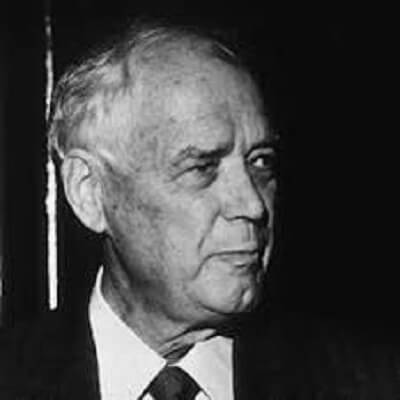
Did Anne eventually have doubts about a husband who later fathered five illegitimate children in Germany? A husband who was known for playing cruel pranks, the perpetual practical joker who NEVER committed another one after the death of his son.
In her last televised interview in 1992, Anna Hauptmann made a personal appeal to Anne Lindbergh to “reveal the truth about this matter”. “I’m waiting for the truth to come out. When it does, I will die the next day in peace.” And just hours before his execution, Bruno Richard Hauptmann sustained his innocence and spawned the doubt that still survives today: “You think when I die it will be like a book I close. But the book, it will never close…”
For further reading on this fascinating, controversial theory that the Lindbergh kidnapping was an “inside job”, I recommend Crime of the Century by Gregory Ahlgren and Stephen Monier. They are the only two Lindbergh case authors with law enforcement experience, and their expert analysis points the finger of guilt directly at Charles Lindbergh.
Author
A guest post on Crime Traveller from JT Townsend, True Crime Detective. JT Townsend is a freelance writer, true crime author and lifelong resident of Cincinnati. Visit his website at www.jttownsend.com and his Facebook page: JT Townsend True Crime Detective.




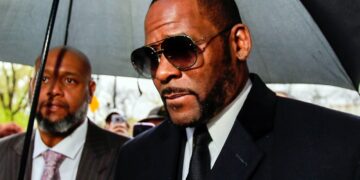


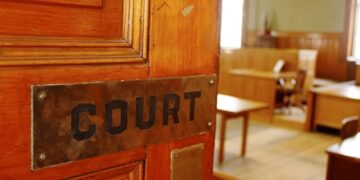

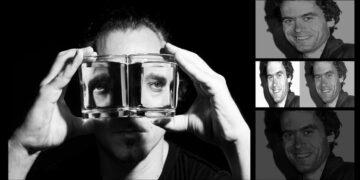
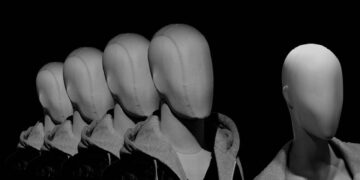
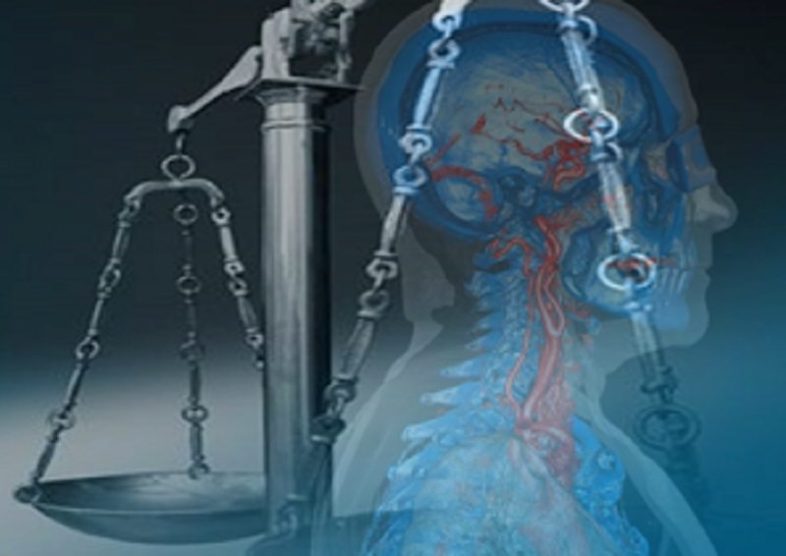
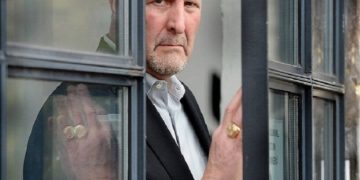
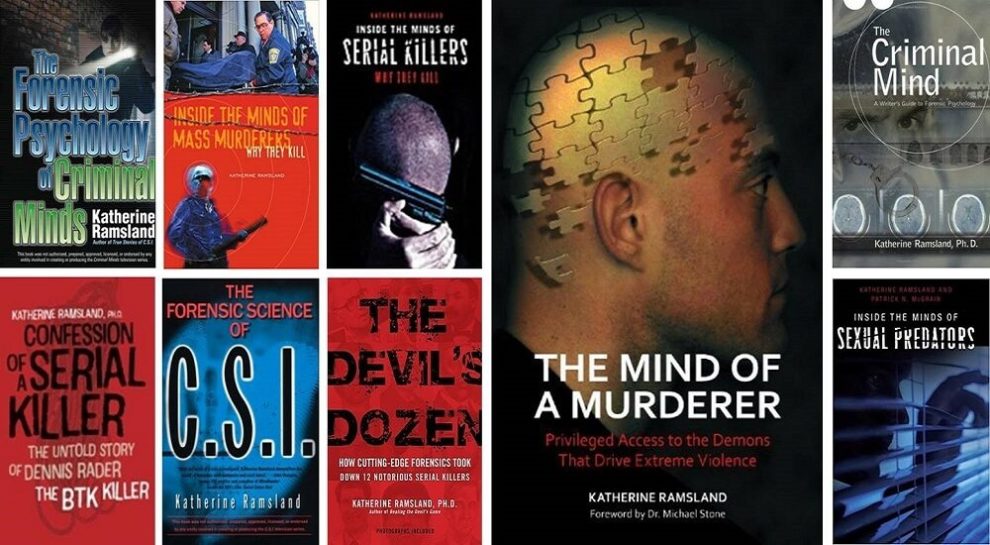
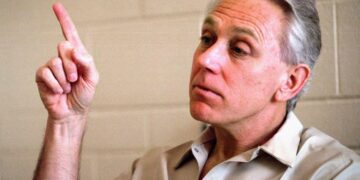
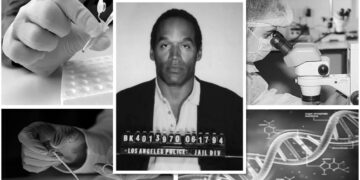
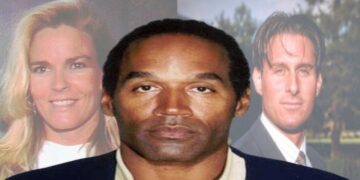

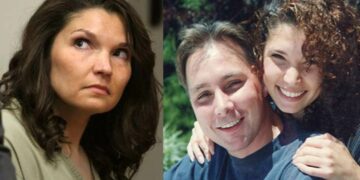

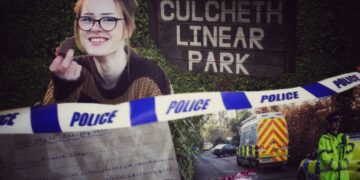

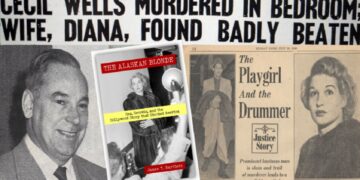



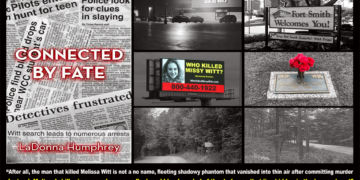

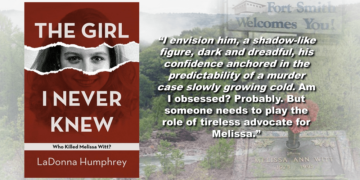
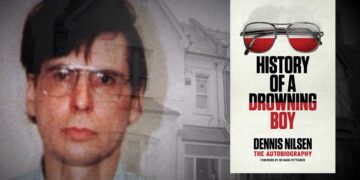
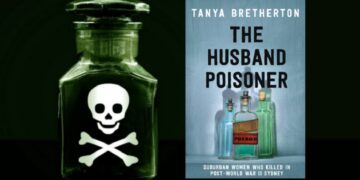
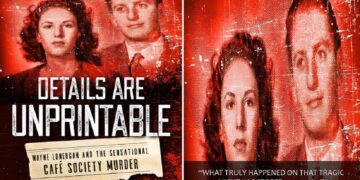



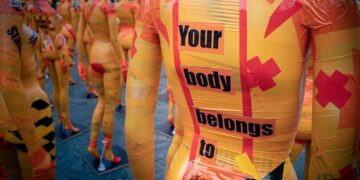
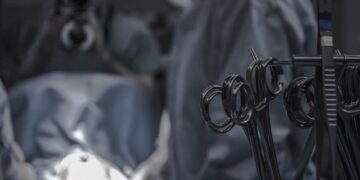
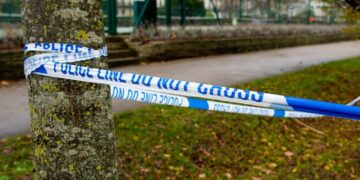

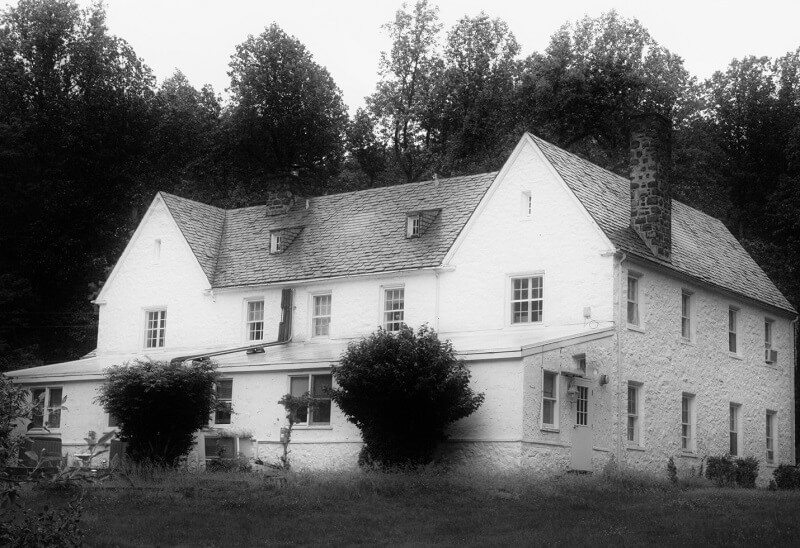

Sounds like Lindbergh was a narcopath who got away with killing his own child. He was a Narcissist. personality disorder. Sociopath. Cluster b
He certainly had an enormous ego and I think entirely possible he either purposely or accidentally killed his son and formulated this kidnap plot as a cover-up, knowing he could use his position to control the investigation and steer any suspicion away from him.
I’m not convinced. There’s enough perhaps to have warranted further investigation, but not enough to have pressed charges. If nothing else, this case underscores the dangers of the police letting someone else take over the investigation.
True, although suspicious behaviour and suspect actions, there is not enough to have charged him. Makes me wonder what evidence or leads may have been found if police had been able to conduct an investigation without Lindbergh’s controls. It is surprising how much control he did have over it even in 1932. I suppose it shows the power his fame and wealth yielded him.
He was also a gigantic fucking asshole! All that power and control over law enforcement and the media……all because
he crossed the “pond” in an airplane first???? He thumbed his nose at J.E. Hoover and was allowed to order around his very own keystone cop investigation??? He certainly also had a superiority complex.
The governor, The FBI, local and state police; District Attorney, and the JUDGE; all sat on their collective FAT ASSES and KNOWINGLY(ffs my pet hamster knows Hauptman was innocent)sent an INNOCENT man to the electric chair. Absolutely disgusting and disgraceful.
Bonnie – Enterprise, Al.
I hate to say that unfortunately I believe Lindbergh was responsible for his sons death. I think Violet Sharpe killed herself, rather than confess to information she had on Charles Lindbergh, and the baby’s disappearance. Charles may always be to the majority an ‘American Hero. Unfortunately, a TARNISHED AMERICAN HERO. ‘
This was a great, pretty thorough article. A few points:
– Lindbergh being in the courtroom isn’t a big deal (Fred Goldman famously sat through the entire OJ trial), it was that he was at the prosecution table and armed which was unusual.
– Lindbergh phoned home a good deal closer to the time of his arrival than he would have were he still in NYC. He was obviously much closer to Highfields than he told Anne.
– Several witnesses stated that a car similar to Lindbergh’s was seen the night of the kidnapping, but because it was significantly earlier than Lindbergh claimed to be in the area, the police wrote it off.
– Betty Gow, who was portrayed as sort of matronly and sweet by the press, was a pretty tough lady who didn’t particularly enjoy her job. During one of the few times she was aggressively questioned she spontaneously blurted, “I was PROMISED I wouldn’t be touched.” Who promised her that and why?
– On his deathbed, butler Ollie Whatley said an insider was responsible for the death of the child.
– Lindbergh’s behavior at the morgue exceeds the quick cremation – he showed no emotion or care towards the deceased child. In fact, he asked for a “meat skewer” to inspect the baby’s teeth and did so methodically, without showing a hint of compassion.
– Lindbergh didn’t give Rosser a copy of the note, they copied it down but withheld the “unique singnature[sic].” Most believe the kidnap gang which was hired to stage the kidnapping and perhaps execute the murder got greedy, later collecting on ransom that was only supposed to be a joke.
– One of the later ransom letters specified the ransom was increased by $20k because they had to bring someone else into the plot. It is likely this fee was to go to John Condon, the intermediary chosen by the kidnappers. Only when he learned the baby was already dead, did he return the $20k in cash to Lindbergh (after the ransom drop, saying he “negotiated”).
– Lindbergh, a famous eugenicist, was very close with Dr. Alexis Carrel, another famous eugenicist. Medical schools at the time hired shady underworld gangs to procure corpses and other body parts for “research.” It is possible the “kidnap” gang from these ties.
– The body wasn’t dumped where it was found the night of the kidnapping – it had been thoroughly searched by police. A canvas bag was spotted on the road nearby with parts of the child’s remains inside of it. Lindbergh probably knew the extortion attempts had to end and the only way to do this was to have the baby’s remains be found. Therefore they were dumped on the side of the road. Wildlife (foxes probably) dragged the rotting corpse a few yards from the roadside to the nearby brush.
– Hauptmann, who got a really raw deal, almost certainly didn’t cut the lumber piece from his attic. Electricians did work up there and cut away some pieces of attic floorboard. These spare pieces were tossed out the window and wound up in a lumber pile. It is here the piece probably originated as ladder material.
– Lindbergh and Condon both testified to “lookouts” at the cemetery, proving there was more than one person involved but the minute Hauptmann was arrested – all logic went out the window so NJ could prove the child was killed in the execution of a burglary. The only charge which could get the death penalty at the time.
– Tellingly, ransom bills kept showing up long after Hauptmann’s arrest.
Hauptmann alone kidnapped and murdered the baby. The money found concealed in his garage (which had serial numbers that matched the ransom money) proves that he did it. The author of this article is grasping for straws, just like all the loonies who tried to pin the JFK assassination on various people other than Oswald. Some people choose to cherry-pick information and create controversy rather than accept the evidence-based conclusions of investigators and our judicial system.
Could the ladder be a red herring? Did Lindbergh walk right into the house by the front door by stealth, took the baby out to his car (Anne thought she’d heard gravel on the drive earlier than when he honked his arrival, iirc). The thumb guard from baby’s hand was found in the gravel drive later.
Then Lindbergh might have driven the baby away from the house, killed him in the woods, hidden the body in the canvas bag and carried it a longer distance from the house to hide it. He then drove back to the house, honked the horn for his 8:35 arrival, and enacted the farce of the quiet family evening. He was probably a bit nervous which is why he pretended to hear the orange crate fall, a statement also meant to insinuate the noise of a wooden ladder.
Guilty imagery: doesn’t an orange crate full of soft round oranges seem symbol of a baby’s soft head hit by wood?
These are strictly my own wild imaginations, but Lucky Lindy was a cruel, hateful man underneath the veneer as evidenced by his mean pranks. Even his joke of kidnapping his own son in the closet. He had the subject on his mind. His cruelty to the Morrow sisters, disloyal to all of them in turn, and perhaps he wrote the note to Constance, a threat to harm her by kidnap if money wasn’t paid. How cruel, he loved to torment people.
And remember too, his first motive in life, the flight to Paris, was done for MONEY and pride. He at first hated fame, then became addicted to it. He missed it, the crowds flocking around him. That’s why he didn’t mind creating the circus around the kidnapping, again he was center ring.
Probably the worst detective story ever and the comments here only bring me joy that the authors are close to joining a cult and committing collective suicide. I guess they dont use the internet for research. SKIP THIS ARTICLE IT’S DISINFO.
amazing read.. thank you so much for compiling this, had me tearing up
If Lindbergh was such a ‘eugenicist’ how is it he had children from two sisters who had walking disabilities?
Then again, perhaps they weren’t born with the disability, so that was acceptable. Little Charlie had rickets as he was on a special diet and had a sun lamp he had to be exposed to daily.
Another thing, the profile compiled about the ‘kidnapper’ matches Lindbergh’s personality. They were dead on there!!
Great read. thank you for this. Is that Gene Rosen of Sandy Hook fame? A known disinfo agent claiming something else as disinfo, that’s rich Gene. Jackmehoff, cherry pick information? What are you on about? Everything about the Lindbergh baby story points to someone in that house being involved and Hauptmann having absolutely nothing to do with the babys demise.
Another thing that came to mind. You said that the house had lots of closets. Is it possible that Lindbergh, being the practical joker that he was, had a secret entrance built into the house only he knew of? Could he have snuck up by that entrance (which accounts for no muddy footprints in the place), taken the baby….etc etc???
Just a thought!!
I’ve read “The Crime Of The Century” a while ago. It’s a really good and well argued book, and it’s great that the Lindbergh case is covered here.
It’s hard to say how much hard evidence against Lindbergh could’ve really been gathered at the time of the investigation, if it hadn’t been so botched, and if the proceedings hadn’t been so strongly influenced by Lindbergh. But maybe at least Hauptmann’s execution wouldn’t have happened.
The voices of those who hint at Lindbergh himself as a potential perpetrator and orchestrator of a bogus abduction are finally getting louder. When I read the book, these voices were still in the fringe & conspiracy section. But a dispassionate look at the available evidence shows that Lindbergh is definitely a plausible suspect.
While I hesitate to accuse him of killing his own son deliberately, I think he would’ve done everything possible in order to cover up the accidental death of his son. And if that’s true and an innocent person has been executed, he also became a murderer.
On the subject of the jury being swayed by Lindbergh’s identification of Hauptmann as the man in the cemetery based on two words uttered at a considerable distance three years before, it is also extremely likely that Lindbergh’s hearing had been impaired by many years flying in open cockpit planes without hearing protection. He lied about that. He had seven secret children with 3 women other than his wife . I would not be surprised to find that he told many more lies, deceived many more people, and was responsible for his little boy’s death.
Great article, just have one more point to possibly add.
– Why would Lindbergh kill his son? Because from what i’ve read, he loved being in the spotlight. This is one of the biggest crime cases and thousands of people knew about it, making Lindbergh one of the most popular people in the country. Could he have done it for the fame?
I totally agree with you. When I was read the case of Baby Lindbergh, I was arrived to this conclusion too. And for me, there is another proof of his guilty: no digital print was find inside the baby room, no digital print of his mother, his nurse or his father, the room was clean but who kidnapped a baby AND take the time to cleaning the room? Only someone inside could have the time to do this. For me, Lindbergh was a sociopath with a complex of god and he killed his son probably because he found the baby wasn’t good enough for his ego. (sorry if you find any mistakes, i’m not english)
No one has mentioned the possibility of the child not being killed, but simply spirited away to be cared for, but disappearing from the parent’s life. If this happened, the dead baby would be one from a nearby orphanage — a recent grave dug up. The motive would be Lindbergh not wanting to be known as fathering a defective child — attitudes were dufferent at the time. He could have arranged this with help from the staff. The ransom notes reflect a group hoping to cash in after the fact. Lindbergh would have had to go along. Quite a few people have claimed they were the missing Lindbergh baby. One sticks in my mind as being believable.
From what I have read, I think, because of Lindbergh’s ego, that he could of been ashamed of Baby Lindbergh, and wanted him to disappear. Therefore, Lindbergh concocted this wild tale that his son was kidnapped. Perhaps some of the authorities were in on it? Why was Lindberg allowed to control the investigation? And, another thought? Perhaps Lindbergh’s association with the Nazis brought out a dark side to him? And, I would be curious to know if his wife, Anne Morrow, was suspicious of Charles Lindbergh’s whereabouts the night of the kidnapping, and why he didn’t want the police, or FBI, involved.
Interesting to see other readers’ comments. For many years, I’ve thought about this case and concluded that Lindbergh did it, deliberately or by accident. His forgetting to appear a scheduled speech gives him away: he was not the type to forget such a thing UNLESS he had something even more important on his mind. I believe that the baby had some physical issues that his father found hard to accept.Too many unusual, first-time-ever things took place that night:missed lecture, staying at that ugly isolated house and so on. Hauptmann may have been been someone Lindbergh used and then abandoned but Hauptmann was more loyal than the ‘great flyer’ and kept his mouth shut – to the grave!
Pretty sure Bruno didn’t do it but that’s a long jump to Lindbergh. What a bunch of “armchair idiots”.
Obviously Lindbergh liked kids or would never of had so many. The idea of him killing his own kid is simply absurd and the person who wrote this fantasy is obviously driven by a hatred of the man for some reason. All his having more kids to women in Germany in the 50’s (he provided for all of them) proved was that he had a high sex drive and wanted to have as many offspring as possible. This would be considered to be perfectly normal in the rest of the world for a rich and successful man.
We all know Lindbergh would agree, “let’s go Brandon!”
Didn’t know about the other dark sides of Lindbergh’s character till now (except the Nazi interest, that, as traditionally reported, seemed to have been a combination of naivete and pacifism), but… That baby was STARVED. Must have had an extraordinarily strong native constitution to “only” have rickets, which is of course a disease of malnutrition. Got it from a book decades ago on the rambling wreckage of the investigation and trial. The child’s diet at 18 months would have been slim for a baby of 5 months. Parents (of decent means) who would do that ALONE would outright kill their child: A smashed skull would be a coup de grace.
For those who say Morrow loved him: NO. Real parental love does not allow a child to be tortured; “dominance” of the other partner be damned. Both came from influential families, but Morrow had enough on her side to save the kid and herself.
Extra (1) Look up the SENIORS, Charles Lindbergh and Norman Schwartzkopf. Interesting! (2) Christie’s MURDER ON THE ORIENT EXPRESS made a great book and movie (1970s version), but one wonders how close Agatha the Great ever came, in her own mind, to the real answer. (3) Evidence has seemed to mount, since the “Lucky Lindy” triumph, that Amelia Earhardt was the better ready to make the flight, but, boyish as she looked, she was missing parts necessary to the flight’s promotors. (4) the “Lindy Hop” was the name of the wild jitterbug dancing that took the world by storm in a different way. Riefenstahl’s hypnotic films of robotic-looking Nazi marchers was, what we would call today, REMIXED with Swing music to look like crazed dancing.
In his comment, Jack Mehoff here stated that “loonies” like the author of this article are grasping at straws and cherry-picking information to create controversy. But some people also ignore or dismiss information that doesn’t fit their rigid perceptions. The article was well researched and many very credible theories that are hard to ignore were put forth that some people refuse to admit to, insisting instead that they are the ramblings of crackpots. Well, I guess you can count me as a crackpot.
I, for one, always doubted that Hauptmann could have walked the half-mile from the road to the house and then walked the half-mile back to his waiting vehicle with a 35 pound child, the child never crying, or the dog never barking. After all, he wouldn’t have driven down the driveway right up to the house if he intended to kidnap the baby before the Lindberghs went to bed, right? I also wondered how Hauptmann could have automatically known the right window to climb into in order to abduct the child, since he had never been in the house before. Besides, how could he have known that the Lindberghs were still there, a day after they usually would have left to go back to their usual residence? These facts, and dozens more, clearly point to an inside job. I mean, come on, doubters! Stop stubbornly hanging on to outdated information.
scenarios theories WhoDidit?:1.)Purple gang/Mafia 2.)wally Stroh said Jacob Nosovitsky?3.)Paul Wendel sign confession witness by Ellis Parker?4.)Gaston Means confession?5.)Dennis Doyle knew both Jacob Nosovitsky & wally Stroh and Doyle who lived Mayflower near St raymond cemetery?6.)John Knoll lived 706 Westchester ave ?7.)Isador Fisch (friend Uhlig)lived 532 E 157 and 149 E 127 near Knoll?8.)John (jafsie)Condon lived 2974 near Woodlawn cem?9.)Richard Hauptman 30 min away who had car green dodge at 1279 E 222nd Bronx? Body in Woods (charlieLindbergh) Mtn Rose hopewell-princeton Rd -Neighbors1.Robert Buffet 2.Charles Schippell (family wife charlotte daughter Charlotte b1921)3.Oscar Fengler 4.Mrs Quinn 5.Leo Rodweiller (Rodwellers) 6.George Schneck (maybe) 7.Joe Cerardi,Gerardi aka Frank Gerome -Cerardi -and Maran and Joe _ rent Schippell (Shack) place july-Oct1930s? People found Body Mtn Rose Names.Wm Allen,Livingston Titus,Orville Wileon,John Craft?Other Theories:1.Alex Carrel (experiental Operations)?2.Skillman Institue for Epilects SkillmanNJ3.ST Michaels Orphanage/industrial School(may of own land body found Mtn Rose)?In the End Ransom Notes Money found Bruno Richard Hauptmann carpenter-stock broker&spend ranson notes-hidden them but dy breath he claim’s innocent-never admit any part in it?Gov Hoffman claim 2-or more involved?
NJSP got the right man for the crime. Read the Crime report and visit the NJSP museum. Lindbergh certainly did not want any more publicity by the news media, and he was wealthy; there’s no motive for him to kill his own son. The ladder was made by the accused with wood out of his home. Now, did the accused get a fair trial? No, he did not. But that does not mean he was innocent. Moreover, there was good evidence that he did not act alone, and yes may have had help from Lindbergh’s housekeeping staff. Please don’t go around bashing a Deadman because of reported rumors-this evil!
I am 90 years old. I remember that a close friend of my parents Dr Werner (seventh day adventist) would visit Hauptman in prison often Dr Werner was convinced that Hauptman was innocent.
Another generalized “evidence” conspiracy theory site…. and all true believers jump on board the titanic of stupid…. amazing how stupid people let themselves become using the Internet (Oracle of all knowledge – NOT!). And we didn’t go to the moon in July 1969, either… “W” Bush blew up the WTC…. whoo! hoo!